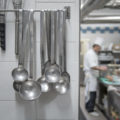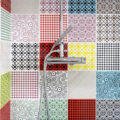“Cooking is not eating. It is much, much more. Cooking is poetry.”
Heinz Beck
Cooking is often the subject of talks with friends: television formats help in this between Masterchef, Top Chef, Bake Off, Hell’s Kitchen and so on. In line with this trend, the restaurant “of the hotel” is increasingly becoming a restaurant “in the hotel”: a revaluation of the reputation for this particular segment in the catering market. The quality of the food in the accommodation is increasingly attractive in choosing the place to spend relaxing breaks as real holidays too.
We go back to the late nineteenth century, when César Ritz, supported by Auguste Escoffier create the idea of the Table d’hôte, that is a menu, with more courses and few choices, charged at a fixed total price. At the time, and for a long time, the restaurant had a great importance for the guest who often stayed for long periods paying great attention to the quality of service and the raw materials used as well as the care of the furnishings and compliance with hygiene standards. The full board was almost a usual practice, also because the outdoor offer were mediocre inns and trattorias.
With time, however, things changed, the taste of travelers evolved and the full board or half board formulas are in a clear decline. This for a cliché still without explanation: “in hotels you badly eat”. That’s why we have the growth of fresh catering, attentive to the territory and local raw materials, the seasonality of the products, with a service that attracts more than letting customers escape. But the hotels, as we said at the beginning, respond in tone establishing themselves as places of “eating well” focusing on quality and zero miles products. This is confirmed by the different hotels increasingly present in the Michelin Guide.
The architect Massimo Mussapi, who specializes in hotellerie, underscored that “thinking back to a real restaurant IN hotel, it is not enough to have a separate entrance, but it also requires a valid motivation to enter in it. The project must involve not only the restaurant area but the adjacent common areas. One hypothesis may be to bring the kitchen in the dining room, to make a theatrical service, which involves innovation in layout and in equipment. Another point is the characterization and the narration: inspired to the territory, or to a product of the territory, but without dependence, guaranteeing flexibility of fruition. Big spaces of course, but that it would never seems empty and that it would always be surprising.”
The AbanoRitz has always given great importance to cooking and to eating well and healthy. On the other hand, with a rich territory such as Veneto, food&wine is one of the strong points and makes the business quite easy. In addition to the White Gloves restaurant, table d’hôte with guéridon service in a classic and traditional atmosphere, in 2013 the AbanoRitz inaugurated the vintage à-la-carte restaurant Il Brutto Anatroccolo (trad. The Ugly Duckling): a sort of reckless “son”, but smart and fun. The menu becomes a narrative, a story, a fairy; the environment becomes a fairy tale. A restaurant of fairy tale or a fairy tale restaurant? Definitely a creative environment, food which respects the palate and pampers the taste buds: it is not about to feed, but about to nourish: satiate the body, warming the heart and stimulating sensations and memories.
Walter Davanzo, an artist from Treviso, has lovingly and personally shaped Il Brutto Anatroccolo, interpreting it and transforming it into a unique place, emotional, cuddle, of sharing, with open feelings. Given the great success, it was then decided to dedicate to this trip in the memories also one of the Creative rooms on the fifth floor of the AbanoRitz Hotel: the 514 “The Swan”, a room where the past has clearly never been so present that now!
Today our “Eat & Sleep” package is born: at a special price you will have a night for two people in one of our Creative rooms with dinner at the Il Brutto Anatroccolo and breakfast (maybe in the room, with no extra charge, like a real VIP, ed.). What better way to enjoy a nice evening without the thought of having to go home soon after? We are waiting for you!










